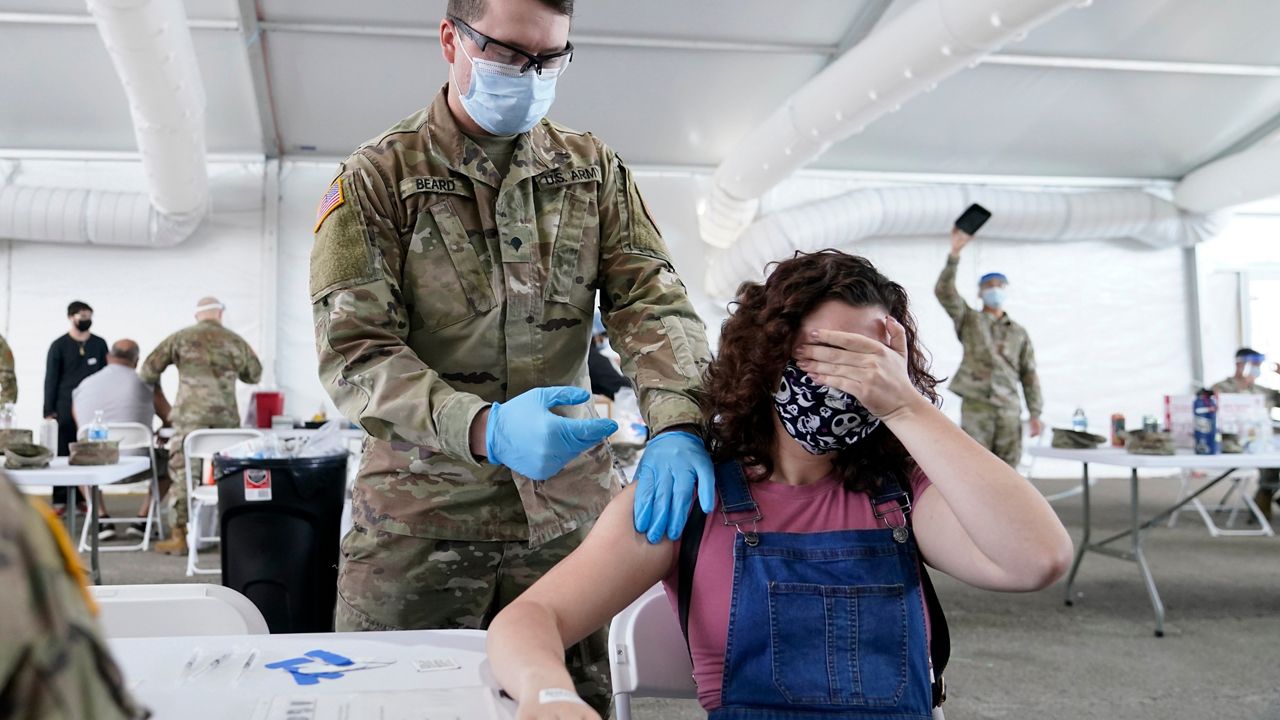COLUMBUS, Ohio — Whether it be getting a driver's license, going off to college, or moving out, there’s a lot of freedom that comes with young adulthood.
But for Cortney Taylor, getting older meant the freedom of making her own medical decisions.
“The entire time I was in school I had no vaccinations”
Cortney said her parents, especially her mother, have always been skeptical of vaccines.
“Even when we were discussing the interview, she wanted to make it clear that she’s not anti-vax, she’s anti-mandatory vaccination of all children”
Even at a young age, Cortney suspected there might be some fault in her mother’s logic.
“I staunchly disagreed with her on a lot of this and we would fight about it, kind of a lot,” Cortney said.
As a result, when Cortney was old enough, as part of an internship with a hospital, she decided to get herself vaccinated.
“At that time I had to get an MMR," Cortney said, "so that’s measles mumps and rubella, a super common vaccine, and one of the things we’re super still at risk for.”
It was a step toward independence of which she has since become more sure-footed. Her mother, while keeping her beliefs, eventually came around.
“To my mother's credit, ever since I have been an adult she has made it clear that it is my choice. Ever since I’ve tried to get the COVID vaccine, I’ve told her how hard it is to schedule and she was like, “Oh, I didn’t know you wanted the vaccine, but I'll help you," Cortney said. "She totally believes this is my decision at the end of the day.”
That being said, Cortney said her mom is still a long way away from getting the COVID vaccine herself.
She's not alone.
According to a recent Gallup poll, 11% of U.S. adults believe vaccines are more dangerous than the diseases they prevent.
For Cortney, the difference of opinion has become a lesson in acceptance and a roadmap for how she might handle similar situations in the future.
“I understand that you shouldn’t just be told what to do and never question it, I think people should do their own research, but at the same time I would probably vaccinate my kids because I think there’s a reason they tell us all to do that,” she said.
Experts say part of vaccine hesitancy in later generations of parents stems from the fact that they haven't seen a deadly epidemic in children like polio first-hand.



